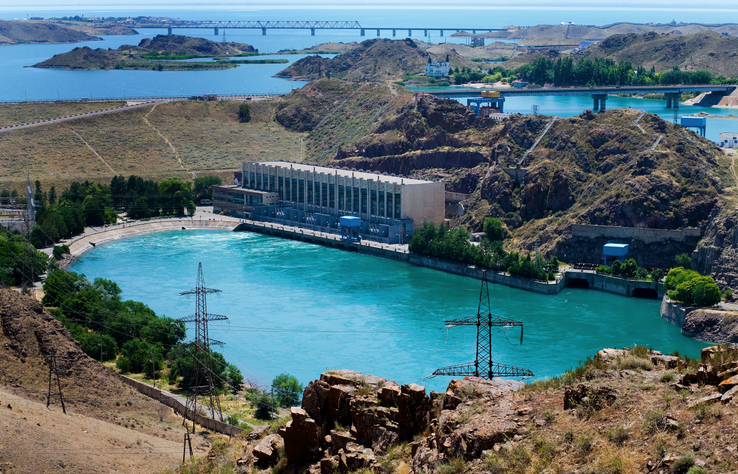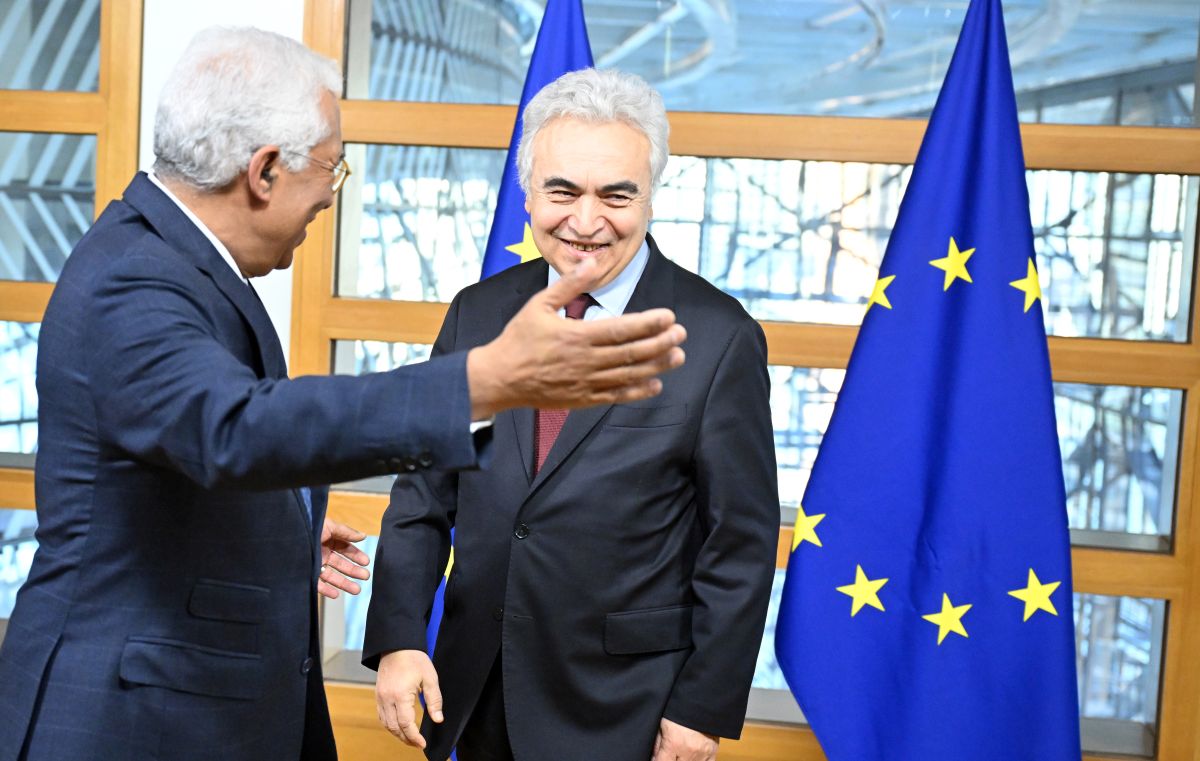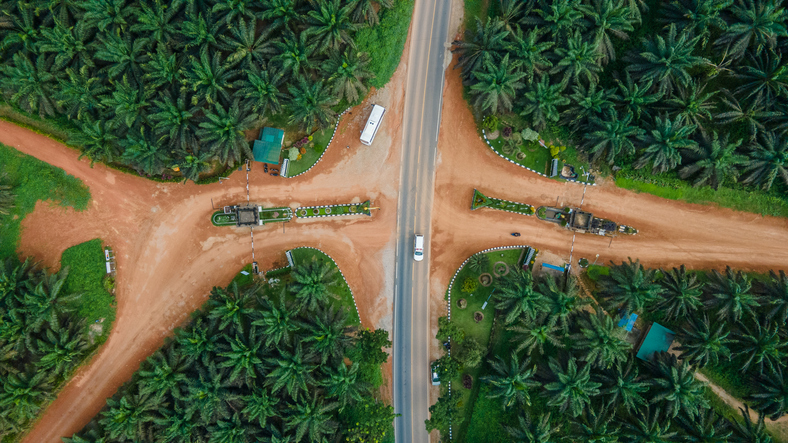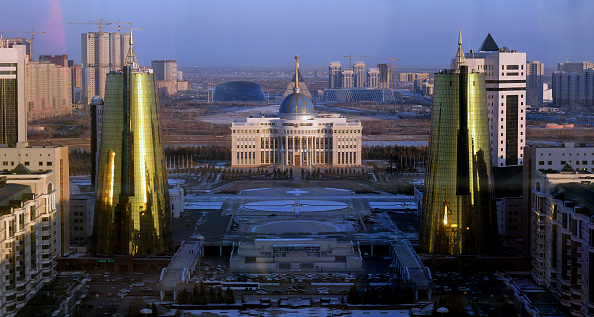Kazakhstan aims to be a 'strategic partner' for Europe's green transition
Kazakhstan is turning its renewable potential into a crucial link for Europe’s energy transition

The European Union has unveiled major investments to boost energy and water security in Central Asia, targeting renewable energy, hydropower projects, and power grid modernisation.
Kazakhstan, Kyrgyzstan, and Uzbekistan signed key agreements with the European Bank for Reconstruction and Development (EBRD) and the European Investment Bank (EIB) during the Global Gateway Forum in Brussels on 10 October.
The new funding will prioritise the Kambarata-1 hydropower project, with the EBRD considering an extra €1.3 billion, while the EIB’s €900 million package includes an EU co-funded feasibility study implemented by the World Bank.
The deals fall under the EU’s broader “Team Europe” approach, which unites European institutions, member states, development banks, and the private sector to drive the green and blue transition in Central Asia.
Dual-track energy strategy
Kazakhstan has reported strong growth in both fossil fuel and renewable energy production in the first nine months of 2025. Oil and gas condensate output reached 75.7 million tonnes, while oil exports climbed to 60.5 million tonnes.
Natural gas production also rose to 51.6 billion cubic metres – nearly 17 per cent higher than last year – while gas transit volumes and domestic consumption remained stable.
In the power sector, overall electricity generation increased by 2.5 per cent, and renewable output increased by almost 12 per cent, reaching 6.5 billion kilowatt-hours between January and September.
The figures illustrate Kazakhstan’s dual-track energy strategy: expanding hydrocarbons while steadily building renewable capacity. The approach sustains growth while tightening energy links with Europe.
Strategic partnership
Kazakh Energy Minister Yerlan Akkenzhenov underlined his country’s role in promoting regional electricity trade, joint hydropower development, and harmonised renewable energy standards across Central Asia.
Presenting Kazakhstan as a reliable energy supplier, Akkenzhenov reaffirmed the country’s readiness to act as a strategic partner to Europe in green energy, critical raw materials, and hydrogen production.
Roman Vassilenko, Kazakhstan’s ambassador to the EU, highlighted the region’s ambition to become “land-linked” rather than landlocked – echoing Kazakhstan’s goal to revive the Silk Road through stronger connectivity.
Vassilenko also pointed to the rising significance of the Trans-Caspian International Transport Route amid global geopolitical shifts, noting that Europe increasingly sees Kazakhstan as a trustworthy and strategic partner.
“Kazakhstan and the EU continue to strengthen, step by step, our mutually beneficial partnership based on shared priorities and a commitment to international law, contributing to the sustainable development of our region,” the ambassador said.
“As a country that consistently advances political and socio-economic reforms, Kazakhstan remains committed to peace, dialogue, and inter-regional cooperation. Our engagement with the EU goes beyond trade and energy, reflecting a shared interest in building a more stable and interconnected future together,” he added.
Energy corridor to Europe
In July, Kazakhstan, Azerbaijan, and Uzbekistan launched the Green Corridor Union, a joint venture based in Baku to coordinate regional efforts on sustainable energy.
Formed by Azerenergy, Kazakhstan’s KEGOC, and Uzbekistan’s National Electric Networks, the initiative underpins the Azerbaijan-Central Asia Green Energy Corridor project.
The three countries aim to reshape the regional energy landscape by exporting surplus renewable electricity to Europe – a move closely aligned with the EU’s climate and energy security goals.
The project also supports progress towards the UN Sustainable Development Goals (SDGs) and deeper regional integration.
Powering the green transition
According to an analysis by Dr Fabio Indeo, external researcher at the University of Siena, Kazakhstan is emerging as a key player in the global green energy transition.
The country is shifting from its traditional reliance on fossil fuels towards renewable power and hydrogen production – particularly green hydrogen – for domestic use and export to Europe.
Its strategy combines renewable expansion, hydrogen development, and regional cooperation – notably through the Green Energy Corridor and Middle Corridor routes – aligning closely with the EU’s diversification agenda.
Yet challenges remain. Green hydrogen requires large water resources – a concern in Kazakhstan’s arid regions – while infrastructure gaps and geopolitical constraints could slow progress.
Regional leadership and innovation
Trade turnover between the EU and Central Asia stands at around €55 billion, of which more than €49 billion is with Kazakhstan. Astana remains the EU’s principal economic partner in the region.
Over 3,000 European-affiliated companies operate in Kazakhstan, with total investments exceeding $200 billion. The country was also the first in the region to sign an Enhanced Partnership and Cooperation Agreement (EPCA) with the EU in 2015.
As the bloc searches for reliable partners to realise its Green Deal ambitions, Kazakhstan stands out – rich in resources, strategically located, and politically stable.
Its vast renewable potential and leadership in regional cooperation make it an indispensable ally for Europe’s energy transition and a frontrunner in renewable innovation across Central Asia.
Investing in Kazakhstan is now viewed as not only about securing clean power; it’s also about strengthening Europe’s energy resilience, diversifying supply chains, and ensuring the continent’s green future is built on genuine partnerships rather than new dependencies.
(BM)






